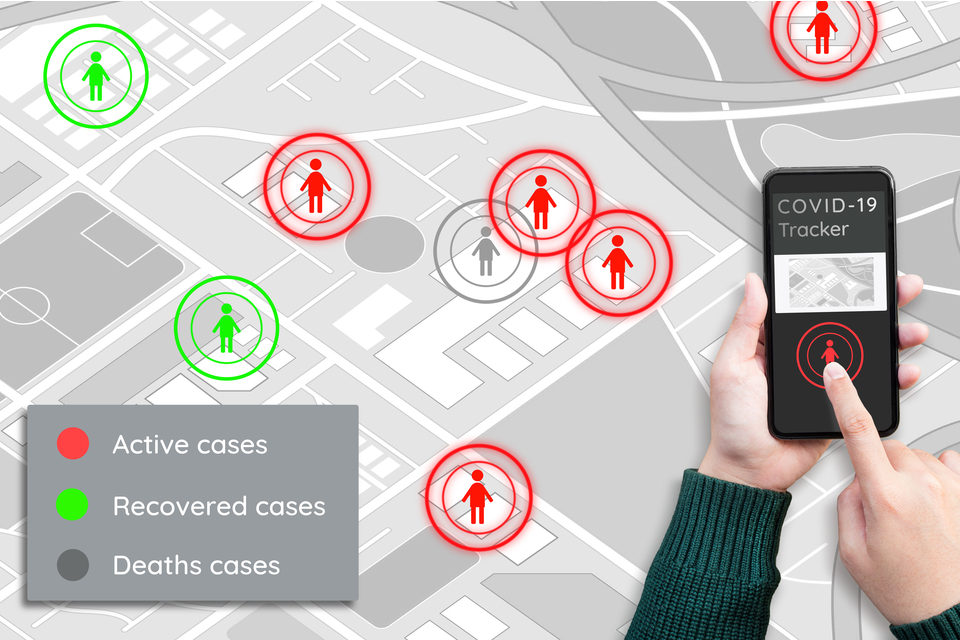Some privacy activists acknowledge the need for surveillance technology in this challenging time. However, others are afraid that it could harm privacy rights in the long run.
Several countries have already ordered electronic monitoring of citizens’ movement to limit the spread of COVID-19.
In Isreal, security agency Shin Bet is now using advanced technology and telecom data to track civilians. Similarly, China is giving smartphone codes displayed in green, yellow, and red to restrict citizens’ movement.
Meanwhile, technology firms in the United States and Europe have started sharing “anonymized” smartphone data to track the outbreak.
For example, researchers at MIT developed an app that could determine if people have crossed paths with an infected individual. Another app from Cornell University allows users to share their location and COVID-19 status anonymously to receive an alert about nearby cases.
Also, a New York-based firm, Unacast, developed a “social distancing scorecard,” which uses phone data to determine whether people are maintaining a safe distance.
Yes, all these technologies can prove useful. But, privacy rights activists are concerned.
Coronavirus Pandemic Could Kill Digital and Privacy Rights
This digital surveillance and smartphone technology are no doubt useful at containing the coronavirus pandemic. However, privacy activists believe it could mean lasting damage to privacy rights.
Some activists cited the precedent of the September 11, 2001 attacks as an example. At the time, the tragedy opened the door to more invasive surveillance in the name of national security, says the activist.
“There is a risk these tools will become normalized and continue even after the pandemic slows,” said Darrell West, who heads the Brookings Institution’s Center for Technology Innovation.
Be that as it may, some ardent digital privacy defenders noted the importance of using all available data to control the pandemic.
A University of Washington researcher affiliated with Stanford’s Center for Internet and Society, Ryan Calo said:
“I’m not against fighting this epidemic with data or tech. “The problem with implementing surveillance in an emergency is that it might acclimate people to that.”
Smartphone location tracking is a sensitive issue that has always been the heart of numerous privacy disputes. However, it could soon become an acceptable part of our everyday lives.


















In the world of cryptocurrency trading and investing, you need to be careful about the risks involved. I was naive enough to believe that I could make huge profits without doing proper research on the subject. I lost $243,000 in USDT and BTC due to a failed cryptocurrency investment plan. Fortunately for me, I was able to contact a reputable cryptocurrency recovery company known as Alien Coin Recovery. I was skeptical at first, but their professionalism and proven experience reassured me. The recovery process involved providing detailed information about the fraud, including transaction history and communication records. I managed to get back all the money I invested in the fraudulent investment scheme. I am grateful to Alien Coin Recovery for their honesty. Here is a recommendation for everyone who intends to recover lost funds. Alien Coin Recovery is the most reliable team. You can contact the Alien Coin team using this information WHATSAPP: +1 210 646-1486 EMAIL: (info@aliencoin.co)